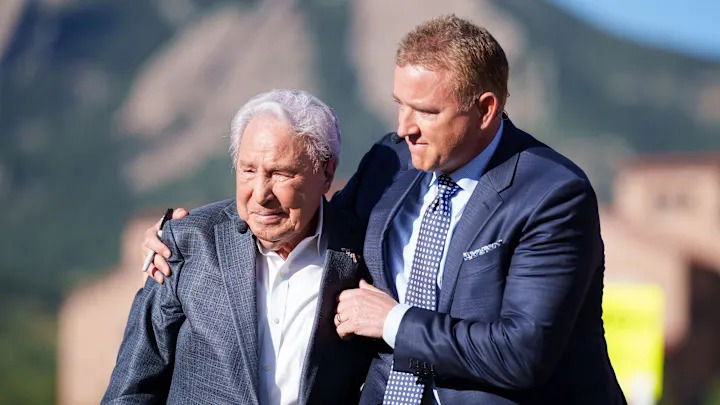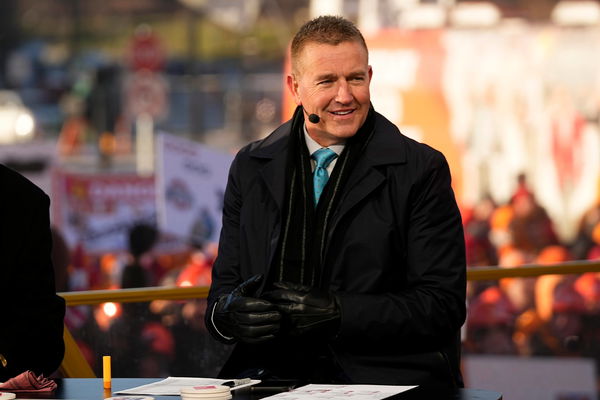
Imago
Insta

Imago
Insta
“Every morning he would go to the front house at the end of the driveway to get the newspaper. Part of his face had already started to droop, and he said, I think I’m having a stroke,” recalled Diane Corso, the daughter of the legendary College GameDay host. That morning, May 16, 2009, changed everything. Corso was rushed to Florida Hospital Altamonte after suffering a stroke that left him partially paralyzed. It was the beginning of a fight that would test his resilience in ways even football never had. As his final broadcast set for August 30 in Columbus, Ohio, as part of the College GameDay pregame show, is at the doorstep, how did those closest to him recall his life-changing health incident?
Watch What’s Trending Now!
Kirk Herbstreit remembers the moment vividly on The Press Box podcast. “Lee Fitting called me and told me he was very, very close with coach. Still is. I called coach to talk to him, and he told me very openly,” Herbstreit shared. The honesty struck him, especially since, as Herbstreit admitted, most people only know what Hollywood depicts about strokes. So, what did Corso reveal?
According to Herbstreit, Corso described it step by step. He bent down to get the newspaper, felt something wasn’t right, but brushed it off. Moments later, sitting at the table with his wife Betsy offering him orange juice, his speech suddenly failed. He couldn’t form words. That’s when reality set in. What came next wasn’t just a medical recovery, but a personal battle to return to the show he loved. Could he really make it back?
The answer was found in Corso’s determination. With the help of a speech therapist, he clawed his way back. “He had the courage and a work ethic to get himself in position to be able to go on the show,” Herbstreit said. Still, he admitted the change was undeniable. “It definitely was a clear change from before that to after that. He was always the coach and I was the quarterback. He was the mentor, I was the pupil.” Yet something in their dynamic quietly shifted.

Imago
Syndication: The Columbus Dispatch Kirk Herbstreit sits on the set of ESPN College GameDay prior to the College Football Playoff first round game between the Ohio State Buckeyes and Tennessee Volunteers in Columbus on Dec. 21, 2024. Columbus , EDITORIAL USE ONLY PUBLICATIONxINxGERxSUIxAUTxONLY Copyright: xAdamxCairns/ColumbusxDispatchx USATSI_25039569
Herbstreit never needed to spell it out, but everyone on the set felt it. “For Chris, for me, for the whole show, it just became different,” he explained. Without discussion, the GameDay crew adapted. But what remained constant was Corso’s spirit, the same fire that had once driven him on the sidelines. And isn’t that exactly why fans still cherish him? And his close ones revere him so much…
Kirk Herbstreit reflects on Lee Corso’s role as mentor and father figure
For Kirk Herbstreit, the bond with Lee Corso has always gone far beyond television. “He was like another father figure in my life, and it started because of not on the air,” Herbstreit admitted. The connection deepened during one of the most vulnerable moments of his life—becoming a young dad to premature twins, each weighing just two pounds. In those early days, fear was constant, and Herbstreit found comfort in someone he didn’t expect. But how did Corso step into that role?
It began with simple, genuine questions. Corso would ask, “How are things going? How are the kids?” And Herbstreit would open up. Unlike many who sugarcoat advice, Corso listened and offered the kind of honesty that comes only from experience. As the children grew—reaching ages three, four, and five—the questions became more complex, and Corso’s guidance only deepened. What made it so unique?
Herbstreit says it was Corso’s willingness to tell him not what he wanted to hear, but what he needed to hear. That authenticity turned their relationship into something more than colleagues. “He almost became like a therapist in a way, or like another parent,” Herbstreit reflected. For Herbstreit, it wasn’t just mentorship—it was family. And isn’t that the greatest legacy a coach can leave behind?
.png)
.png)
.png)





